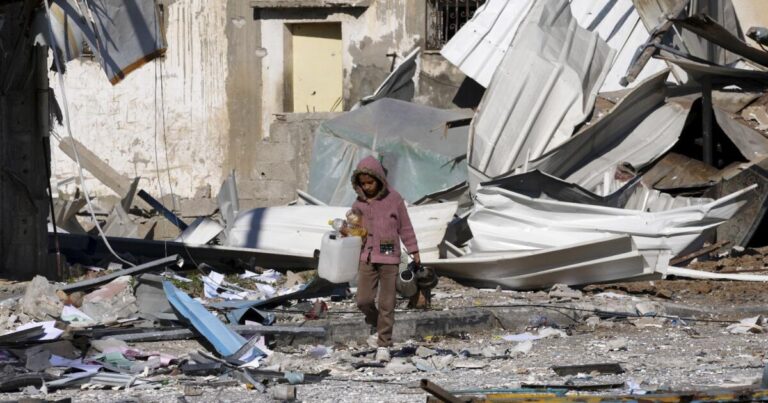The war in Gaza is taking its toll not only on the body but also on the mind.
The burgeoning mental health crisis in the small coastal enclave has been largely overshadowed by the scale of death and destruction caused by more than three months of Israeli shelling. However, many experts believe that psychological damage may be one of the war's most lasting legacies.
More than 25,000 people have been killed in Gaza, according to Palestinian health officials. Most of the country's 2.3 million people have been displaced, according to the United Nations. Satellite images show more than half of all structures in Gaza (schools, housing, universities) are damaged or in ruins.
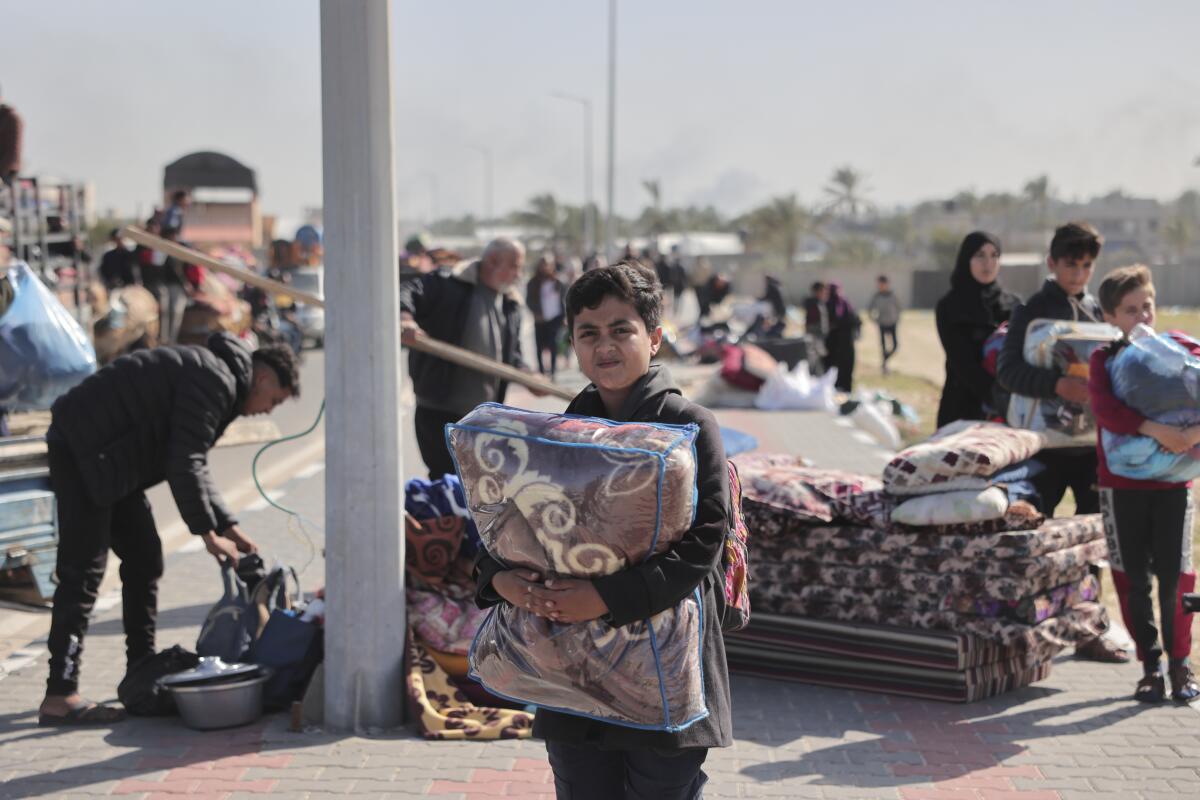
Palestinians flee Khan Yunis during an Israeli ground and air offensive on the Gaza Strip, January 22.
(Bashar Taleb/AP)
But those at the center of Gaza's decades-long struggle to build a mental health system say the full extent of long-term trauma, especially among young people, will likely not become clear until the fighting is over. talk.
“The emotional scars will remain for a very long time after this catastrophe,” said Dr. Sama Jabr, head of mental health services at the Palestinian Ministry of Health in the West Bank's administrative capital of Ramallah. “And they will be passed down through the generations.”
There are so many children in Gaza whose entire families have been killed that hospitals classify them with the abbreviation WCNSF, which stands for “wounded child, without family.”
People around 10-year-old Dareen Anas al-Baya, hospitalized in Deirin al-Balah in central Gaza, are using colored pencils to express their feelings even when they feel like they can't talk to anyone. He encourages her to express herself.
“I draw every day,” said the girl, who lost her father and mother in the bombing and suffered a severe leg injury, but was still alive with one of her siblings. Dozens of other members of the girl's immediate family and relatives who had taken shelter with her in her home were also killed.
One of the uncles survived and is receiving treatment in Turkey, medical staff said.
“I hope he takes us to him,” Darlene said hesitantly.
Even for children left behind physically unharmed by a war that killed an estimated 12,000 people and injured more than twice that many, those working in the field say the psychological effects are ubiquitous.
“In every tent we inspect, there are children who compulsively suck their fingers, wet their beds, suffer from speech disorders, lose their appetite, have nightmares, and cannot sleep,” she said. said Dr. Arafat Abu Mashaikh, head of the health department. Al Aqsa Martyrs Hospital in Deir Al Bala.
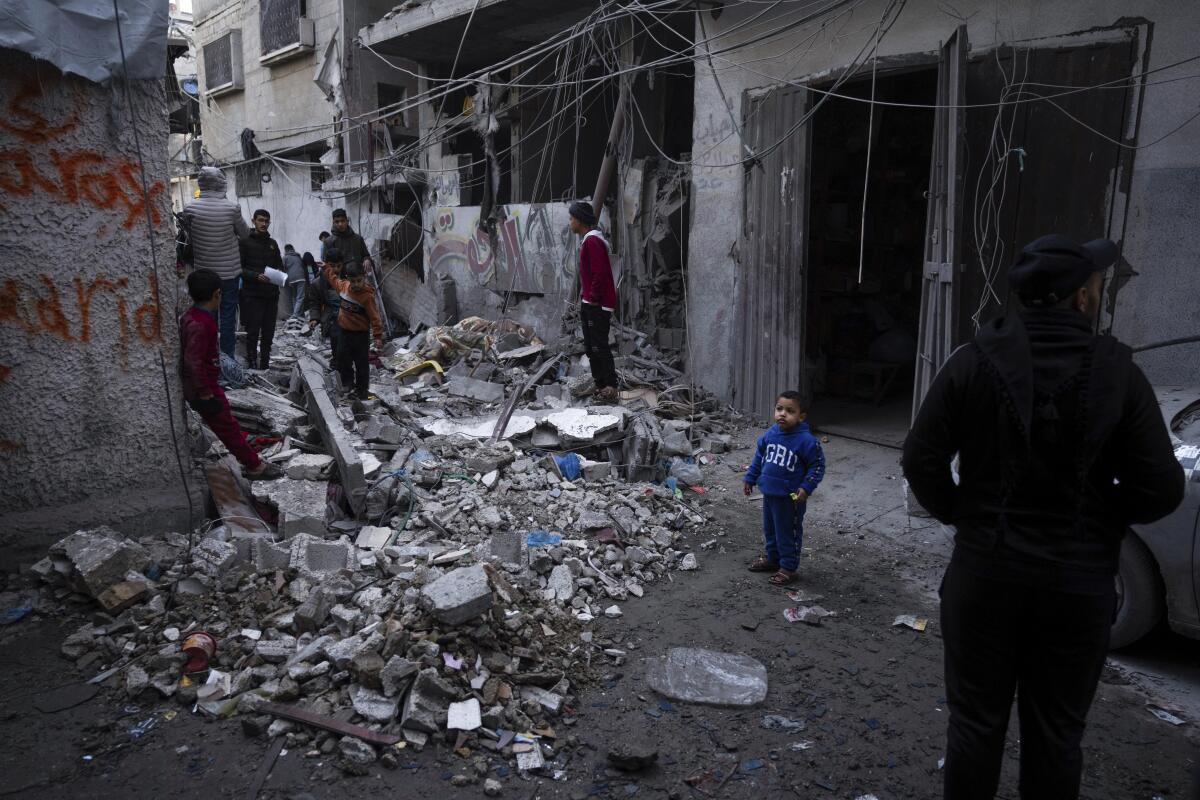
A Palestinian assesses the damage caused by the Israeli attack on Rafah in the southern Gaza Strip on January 17.
(Fatima Shubeir/Associated Press)
Youth are also a vulnerable group, and this war is one of several that Gaza's youth have already experienced, at a time when they are developing their beliefs and social identity. is happening.
“Their worldview and the way they see themselves will be distorted by this experience,” said Jabr, director of Palestinian Mental Health Services and a clinical psychologist.
Adults are also suffering. Before the war, Gaza had one inpatient psychiatric hospital with just 40 beds. Jabru said shelling crippled the facility early in the conflict, and families desperately moved from one site to another in search of safety, while relatives with severe mental health problems struggled to survive. He decided to take care of her.
Health officials say five of the six community mental health centers across Gaza that were distributing psychiatric drugs were forced to close in the first weeks of the war. And telehealth counseling appointments, a lifeline for people living in remote areas, quickly became a casualty of frequent communications blackouts.
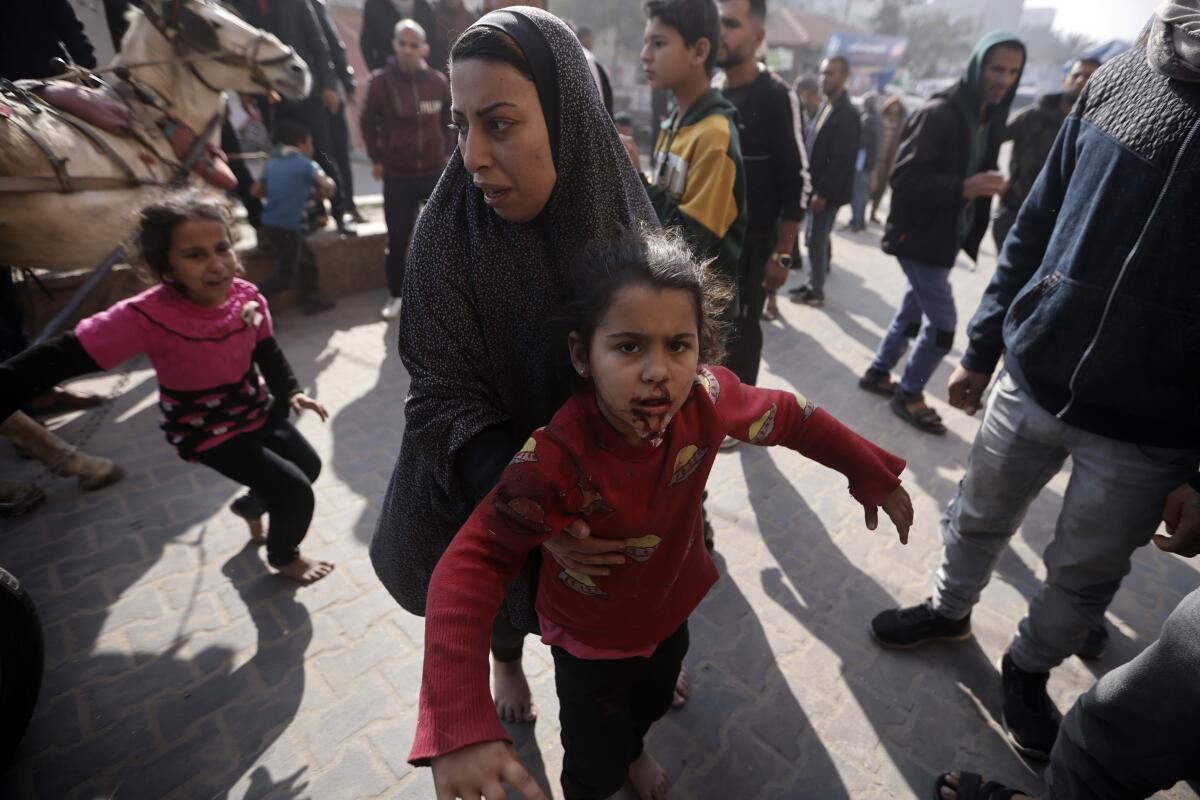
On January 22, 2024, a Palestinian injured in Israeli bombing in the Gaza Strip is brought to Nasser Hospital in Khan Younis.
(Mohamed Daman/Associated Press)
Before the war, years of efforts by mental health professionals and community service workers in the Palestinian territories began to remove some of the social stigma associated with mental illness. Doctors say even conditions like anxiety and depression have traditionally made patients and those closest to them feel isolated and ashamed.
Some experts said the war leveled out attitudes toward mental health, as virtually everyone found it harder to cope with their situations and mental struggles became more acceptable.
Many people, especially parents, still feel the need to hide their pain as much as possible. Hanan, who lost seven children and was forced to evacuate and lives in a tent in central Gaza, is terrified of the bombing, but tries not to let her children see the sights. She said she was determined.
“I always acted like I wasn't scared. Even if I was screaming, I would pretend to be laughing,” said Hanan, 48. After her family was evacuated to the school, she secured trumped-up promises from her daughters in an attempt to calm them down. Security officials said they were safe there. They soon had to flee again.
Hannan said he sometimes couldn't handle the pressure and pretended he needed to go to the camp's dirty toilet just to pass the time.
“I want to run away. Get out of the tent and run,” she said. “I pretend I need to go to the bathroom so I can walk outside at night.”
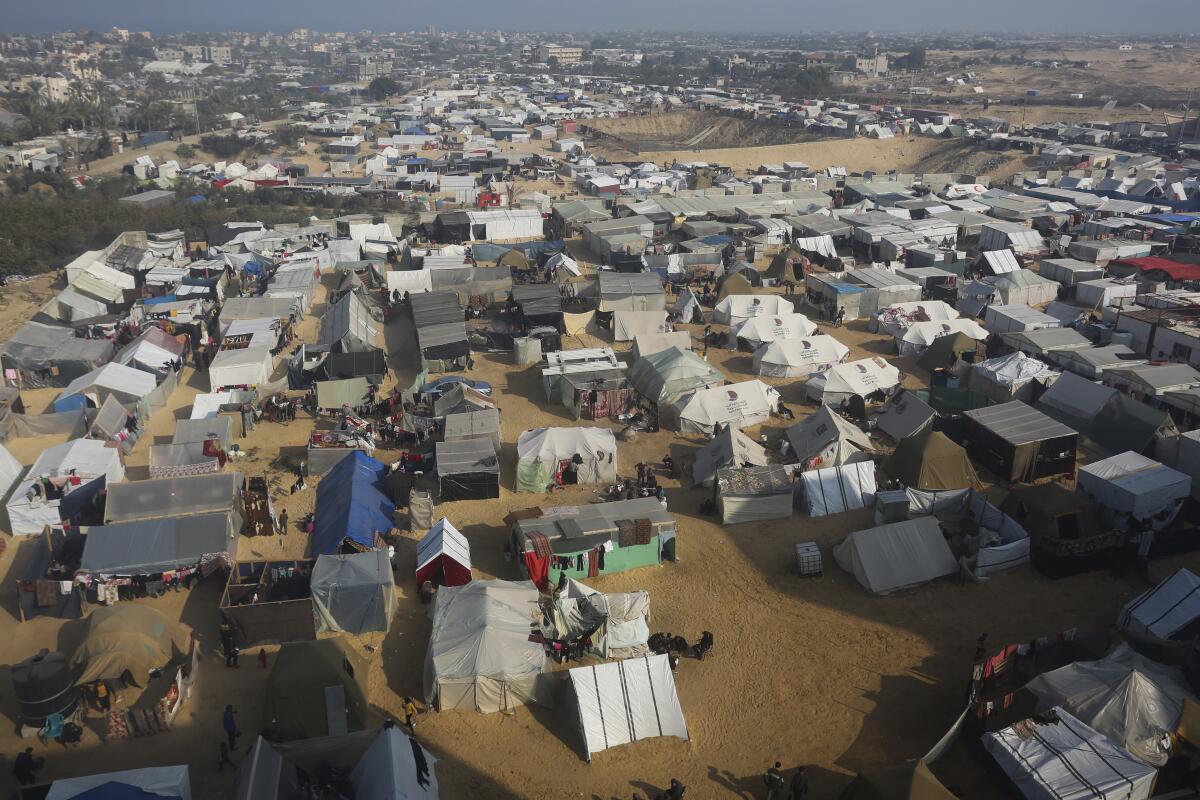
Displaced Palestinians gather at a makeshift camp in Mwasi, southern Gaza Strip.
(Hatem Ali/AP)
Health experts said living in constant fear poses its own dangers, as it is common for decision-making abilities to be impaired by extreme stress. Getting through the day in Gaza requires ingenuity and planning, including finding shelter, obtaining food, and finding clean water.
“In a combat zone, your ability to survive can be greatly affected by your mental health,” says Dr. Steve Sugden, a U.S. Army Reserve colonel, psychiatrist, and associate professor at the University of Utah. “People in this state of mind make decisions that are more reactive, reacting immediately to events rather than thinking things through.”
In Gaza, the number of people available to provide care and comfort to people in mental distress is decreasing. Because they are also traumatized. Against the backdrop of the general collapse of the medical system, such losses may go unnoticed, but they are increasingly felt as the war drags on.
“Many people in Gaza are trained to provide psychological 'first aid', including nurses, general practitioners and teachers,” Jabr said. “But now, the ability to help is dwindling because no one is immune to the loss of loved ones, homes and property.”
For many people in Gaza, asceticism is the only way to survive, medical experts say. After having to leave a loved one for dead under rubble, a person may feel guilty for the rest of their lives, but in that moment they may feel there is nothing to say.
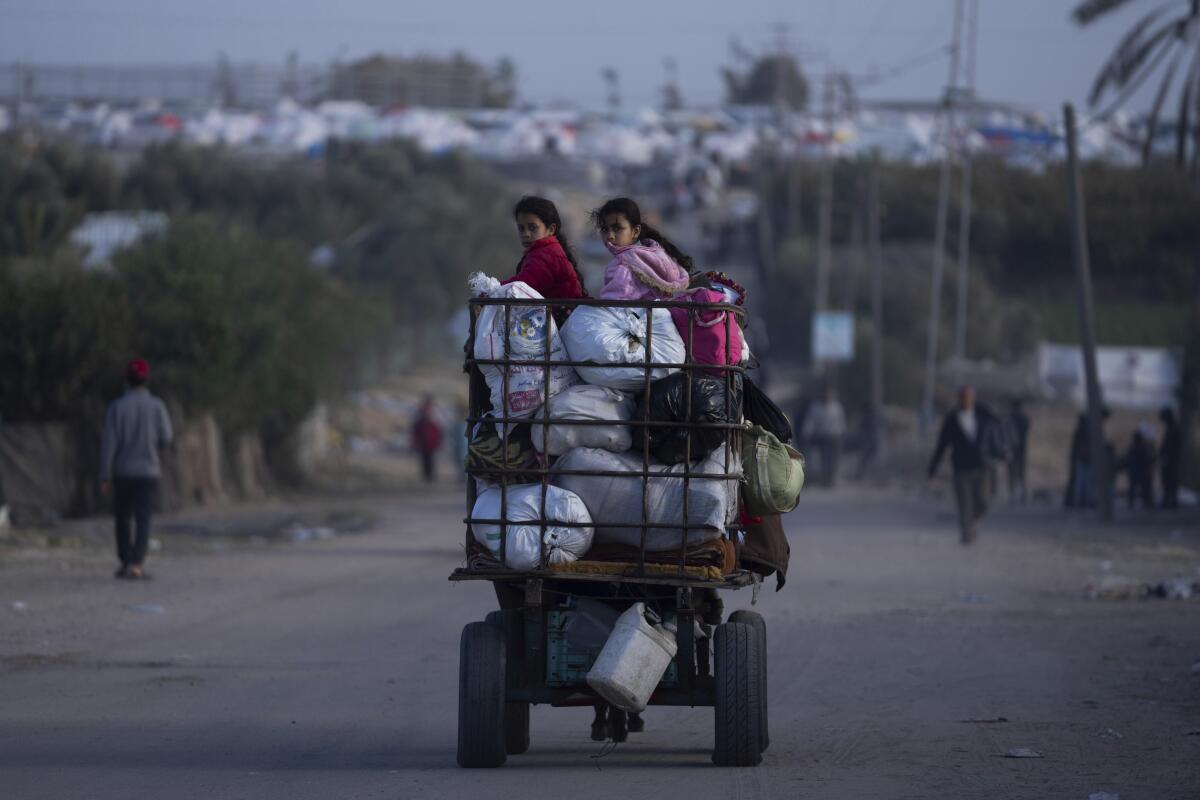
On January 22, 2024, Palestinians who fled Khan Yunis arrived in Rafah in southern Gaza.
(Fatima Shubeir/Associated Press)
Jabr, who is originally from Ramallah, keeps in touch with colleagues in the mental health field as much as possible. Sometimes she will offer snippets of practical advice, but there's one scenario she finds particularly difficult to deal with.
“Then people I know, whose children were killed, whose homes were destroyed, who lost so much, keep asking me how I'm doing and how I'm holding on,” she said. Told. “That's the most unbearable thing.”
The name of the Times' Gaza correspondent cannot be published for security reasons. Staff writer King contributed to this report from Jerusalem.


